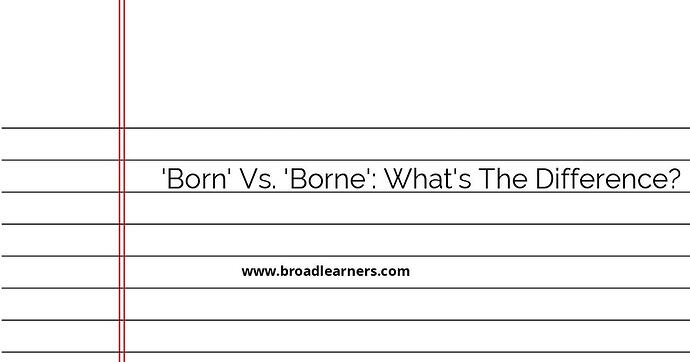The words 'born' and 'borne' are homophones, meaning they sound the same but have different meanings and usages. Many people often confuse these terms; however, understanding their difference is crucial for precise communication. In this article, we elucidate the differences and provide examples for clarity.
- 'Born'
-
What it Means: The term 'born' is primarily used as a past participle and is associated with birth or the act of coming into existence. It signifies the beginning of life and is often linked with living entities.
<h3>Examples:</h3> <ul> <li><i>She was born in New York City.</i> <p>This sentence refers to the place where a person began their life or came into existence.</p> </li> <li><i>The twins were born on a rainy day in April.</i> <p>The sentence describes an event (birth of the twins) that took place on a specific day.</p> </li> </ul> - 'Borne'
-
What it Means: 'Borne' is the past participle of the verb 'bear,' which means 'to carry' or 'to support.' It assumes its meaning in contexts involving carrying, enduring, or holding up under an obligation or load.
<h3>Examples:</h3> <ul> <li><i>The burdens were borne with great dignity.</i> <p>This indicates that the burdens or responsibilities were carried or endured graciously.</p> </li> <li><i>The bridge has borne the weight of many vehicles over the years.</i> <p>Here, 'borne' refers to the bridge's ability to carry or support the weight of vehicles.</p> </li> </ul>
Key Points to Remember
To remember the difference between 'born' and 'borne':
- Use 'born' for contexts related to the beginning of life or coming into existence.
- Use 'borne' for contexts involving carrying, enduring, or supporting.
Understanding these distinctions will enhance the precision of your communication, ensuring the correct meaning is conveyed in your writing. Applying these guidelines will allow you to effectively incorporate both terms in your written and spoken context, enriching your language skill set.
Did I miss anything? Respond below
